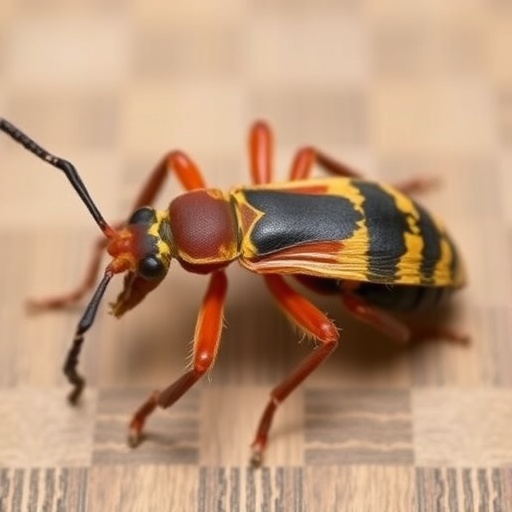
As the global population surges towards an estimated 10 billion by 2050, the search for sustainable and efficient food sources has become a critical pursuit. Among the most touted solutions in recent years has been insect-based protein, promoted as a low-impact alternative to conventional meat consumption. Proponents argue that insect farming boasts a smaller environmental footprint, requires less land and water, and emits fewer greenhouse gases compared to traditional livestock. However, recent research, including a comprehensive study published in npj Sustainable Agriculture, suggests that despite the growing buzz, insect-based foods may not significantly reduce global meat consumption in the foreseeable future. This revelation challenges the prevailing narrative and invites a deeper examination of the socioeconomic and cultural factors that underpin dietary choices at scale.
To understand why insect-based proteins have gathered momentum, one must appreciate the environmental crises driving innovation in food systems. Livestock agriculture is a major contributor to greenhouse gas emissions, deforestation, water depletion, and biodiversity loss. Enter insect farming—a method boasting rapid growth cycles, high feed conversion efficiency, and the ability to be cultivated on organic waste streams. On paper, insects seem like ecological superheroes. Yet, as Biteau, Bry-Chevalier, Crummett, and colleagues reveal, the reality is more complex when human consumption patterns and market dynamics are considered. The study applies behavioral economics, market analysis, and ecological modeling to forecast the potential impact of widespread insect protein adoption.
Cultural perceptions and historical biases present an immediate barrier. In many Western and affluent societies, insects are relegated to the realm of pests or novelty snacks, rather than mainstream protein staples. Even in regions where entomophagy—the practice of eating insects—is traditional, it typically supplements rather than replaces larger quantities of meat. This cultural inertia means that consumer acceptance and demand are significant hurdles. For insect-based products to meaningfully displace meat, they must overcome deep-seated psychological aversions and culinary norms—a monumental task requiring more than nutritional or environmental advocacy.
.adsslot_FNATP8n7qM{ width:728px !important; height:90px !important; }
@media (max-width:1199px) { .adsslot_FNATP8n7qM{ width:468px !important; height:60px !important; } }
@media (max-width:767px) { .adsslot_FNATP8n7qM{ width:320px !important; height:50px !important; } }
ADVERTISEMENT
Economically, the fledgling insect farming industry faces scalability and cost-competitiveness challenges. While insect protein conversion rates are efficient, current production volumes remain negligible compared to mass livestock agricultural output. The infrastructure, processing technologies, and supply chains required to bring insect protein into mainstream markets are underdeveloped and costly. Scaling these operations to a global level that could meaningfully offset meat demand would require substantial investment and time. Moreover, the price points for insect-based foods often remain higher than conventional proteins, limiting adoption among cost-conscious consumers.
The study further highlights that even optimistic large-scale adoption scenarios of insect protein result in only marginal reductions in livestock meat consumption. The mechanisms driving meat demand are multifaceted, including rising incomes, urbanization, and cultural preferences that favor traditional animal proteins. In many developing economies, increased wealth correlates with greater consumption of beef, pork, and poultry. Switching these growth trajectories legibly toward insects would necessitate more than product innovation; it would require concerted social and policy interventions.
A critical aspect explored by the researchers involves nutritional equivalency and culinary versatility. While insects provide high-quality protein, essential micronutrients, and healthy fats, integrating them into established culinary practices remains limited. Unlike meat, insects have not yet been fully incorporated into diverse food products accepted by general consumers. Technical challenges in processing—such as mask flavor profiles, improve texture, and enhance palatability—are ongoing areas of research but have yet to reach breakthroughs that would catalyze mass market penetration.
The environmental benefits of insect farming, while real, must also be contextualized within broader food systems. The life-cycle analyses presented in the study note that while greenhouse gas emissions per kilogram of insect protein are substantially lower than beef or pork, raising insects on an industrial scale still consumes energy and resources. Additionally, potential risks associated with large-scale insect production—such as biosecurity threats, allergenicity, and waste management—require critical regulatory attention before insect farming can be safely and sustainably upscaled.
Given these findings, the study challenges the common narrative framing insect-based foods as a silver bullet for meat-related environmental problems. Instead, it positions insect protein as one piece of a multifaceted solution portfolio that includes plant-based proteins, lab-grown meats, demand reduction strategies, and food waste minimization. The complexity of global food systems demands embracing an integrated approach rather than singular fixes.
The role of policy is underscored as pivotal to steering consumer behavior and industry evolution. Governments can incentivize research and development aimed at improving insect food products, educate consumers to reduce the “yuck factor,” and implement subsidies or taxes that reflect true environmental costs of meat. Global cooperation and cultural sensitivity are also essential, as food traditions vary widely and successful dietary transitions must be locally relevant and acceptable.
Industry stakeholders are encouraged to innovate beyond novelty snack items, exploring functional food ingredients, protein isolates, and hybrid products combining insect protein with plant-based matrices. Integrative food science advances may enable insect proteins to enhance nutritional profiles and functional attributes in processed foods, thus extending appeal and applications.
Furthermore, consumer education and storytelling have emerged as tools to reframe insect foods from curiosities to credible protein sources. Emphasizing sustainability benefits, gastronomic creativity, and health attributes can gradually shift perceptions. However, the pace of such attitudinal change tends to be incremental and uneven across demographic groups and cultures.
Looking ahead, the research highlights the importance of multidisciplinary collaboration involving entomologists, food scientists, sociologists, economists, and policymakers. Only inclusive dialogues and evidence-based strategies can effectively leverage insect protein’s contributions to sustainable diets while acknowledging its current limitations.
In sum, the surge in interest surrounding edible insects reflects a broader imperative to innovate in sustainable nutrition. Yet, despite environmental allure and technological promise, insect-based foods alone are unlikely to disrupt entrenched meat consumption patterns within the next several decades. The path towards sustainable protein consumption remains complex, requiring nuanced solutions attentive to ecological realities, cultural contexts, economic structures, and consumer psychology.
This new research serves as a timely reminder that sustainable food futures demand both innovation and pragmatism. It cautions against overhyping novel foods as panaceas and encourages a measured, multifactorial approach to transforming how we nourish a growing population. In the evolving dialogue around sustainable agriculture and nutrition, insect protein will hold a meaningful place—but only as part of a broader, diversified strategy to reduce the environmental footprint of our diets.
Subject of Research: Insect-based foods and their potential impact on global meat consumption and sustainability.
Article Title: Beyond the buzz: insect-based foods are unlikely to significantly reduce meat consumption.
Article References:
Biteau, C., Bry-Chevalier, T., Crummett, D. et al. Beyond the buzz: insect-based foods are unlikely to significantly reduce meat consumption. npj Sustain. Agric. 3, 35 (2025). https://doi.org/10.1038/s44264-025-00075-z
Image Credits: AI Generated
Tags: biodiversity loss due to livestockchallenges of insect farming adoptioncultural factors in dietary choicesefficiency of insect farming practicesenvironmental impact of livestock agriculturegrowth potential of insect agricultureinsect foods vs traditional meat consumptioninsect-based protein alternativesreducing greenhouse gas emissions in food systemssocioeconomic barriers to insect consumptionsustainable agriculture innovationssustainable food sources for 10 billion people



